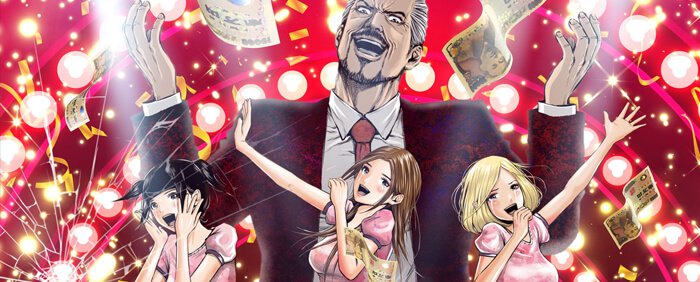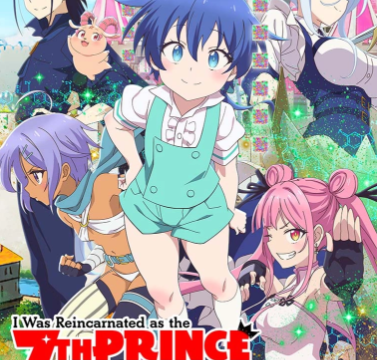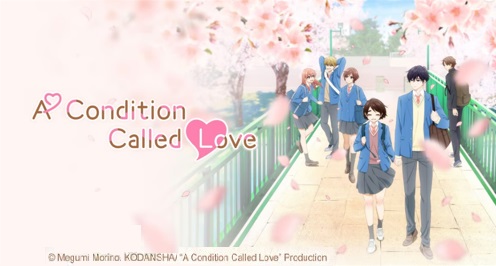English Dub Season Review: Back Street Girls- Goku Dolls Season One
This show is repugnant.
There’s a lot that I don’t understand about pop music. For one thing, my musical taste interest begins around 1977 and ends not long after 1994, long before the era of bubblegum pop even began its assault on American airwaves. I am even further disconnected from the hit machine girl-group phenomenon that swept Korea, China, and Japan after the advent of Simon Fuller’s Spice Girls and Lou Pearlman’s Backstreet Boys and NSYNC. What I have come to understand is that the phenomenon combines the worst of the United States’ late-stage capitalism with the low-priority given to individual expression in East Asia. The result seems to be an endless game show wherein poor children are trained from an extremely young age to not only sing and dance, but to compete with one another for spots on singing groups where they can age out, burn out, or get cut semi-constantly. Labor conditions in these groups are apparently awful, but little is being done to rectify them. This kind of dystopia is the exact kind of situation rife for satire, so it’s an understatement to say that J.C. staff squandered their premise when they failed to make anything even remotely enjoyable for the season’s entire run.
Back Street Girls– Goku Dolls is the strange tale of three Yakuza agents who, after an overzealous attempt to take out a rival gang, are forced to get sex change operations and perform as the eponymous Goku Dolls, an underground idol group funded by the gang. Back Street Girls is the cruel story of three men tortured physically, emotionally, and psychologically. They are all forced to inhabit the same incredibly small three-room apartment above their performance theater. They are denied food and forced to subsist on IV drips in order to stay thin. They are not allowed to leave the theater for any reason, and when even a minor infraction occurs, they are beaten bloody or forcibly brainwashed to alter their behavior to the whims of their handler.
This is truly one of the most disturbing pieces of media that I have ever seen. I can almost see what Goku Dolls is going for. The target of ridicule is fairly obvious; idols live an insanely controlled life akin to slavery, so why not just make the characters actual slaves? This point is obscured by the fact that the dolls, with the exception of an underage recruit they pick up three-quarters of the way through the first season, are men. This detracts from the point more than it adds. While it seems as if this torture is something that the show’s creators wouldn’t want to force on people assigned female at birth (thank god there’s some line), it’s disturbing that they think that ‘men’ deserve this treatment.
The sex change stuff is more confusing than anything. None of these men want to be women, so they are still men, despite their now female-presenting bodies. Some of the show’s attempts at humor are the men getting used to, and even finding joy, in the new social privileges a young, attractive woman’s body affords, but it’s all hack sexist tripe. Breasts are fondled, lesbianism is experimented with, and the men try to urinate standing up without their phalluses, but none of it gets a laugh. I was never really able to get over the premise of this one. The unimaginable psychological torture of a forced sex change operation is more than enough, but the abuse the troupe suffers daily at the hands of their Yakuza boss is horrific. At one point, a new recruit to the group, an American, is frustrated with his inability to masturbate in the close quarters of their prison cell. The logical answer, then, is that he is psychologically tortured with pornography and a pair of dogs in a scene that turned my stomach.
I’ve spent quite a bit of time in my career as a critic highlighting bad satire. Satire is hard. A point needs to be made clear without seeming overly preachy to an audience. The most common case for a bad satire is a failing on that first point. Most satire fails to make its point clear and instead plays out more as an example of the atrocity it’s mocking rather than a counterpoint to it. The most common reason for this failure is the lack of a moral center. What I mean by this is that most satires have a character who has the ‘correct’ viewpoint for a situation, or at least espouses the author’s view on the issue at hand.
Take, for example, Lisa from The Simpsons or Huey from The Boondocks. Each is an avatar for the author who sets the other, more misguided, characters straight. A problem with moral characters, however, is that they are hard to maintain in serial fiction. Over time, a moral character can start to seem moralistic and therefore boring. This is why Lisa and Huey have rarely considered the most interesting or quotable parts of their television shows. While this is fine in a film or novel whose point only needs to be articulated once, in serialized media, such as television, many different moral lessons need to be dispensed, resulting in this perceived moralism.
One way serialized fiction has been able to get around this is by not having a moral center. Shows like It’s Always Sunny in Philadelphia or Family Guy use their lack of moral centers to counteract an audience’s expectation of a big life lesson at the end of an episode of television. What this has resulted in, however, is a lack of satirical bite on the part of both shows as their runs move into the double-digit season numbers, and instead, the shows become nihilistic displays of just how terrible characters (and by extension people) can be to each other. While this is, in its own way, instructive, it’s hardly satire.
Another tact television has taken is to allow different characters to be the moral center on different issues. This is something less exclusive to satire, and more common in longer running media, such as traditional sitcoms. As characters deepen, they develop nuance. This nuance allows them to be blind to some issues, even as they are hyperaware of others. Where, then, does Back Street Girls fall on this spectrum?
It’s truly hard to tell. While the men are forced into the idol group against their will, it seems as if they continue with their jobs out of loyalty to the Yakuza as much as fear for their lives, at least at first. Their desire to continue their hellish existence wanes as they move throughout the season, at least until their captain arrives. About eight episodes in, the man who inculcated the idols into the Yakuza life is released from prison. This renews the Goku Dolls interest in being in the group for the Family, but this enthusiasm only brings the captain (and them) further misfortune. The final episode ends with the girls being offered their freedom. They gladly accept, only to have the offer rescinded right in front of them as a joke.
The men often (at least mentally) decry the cruelties and indignities of their lives, but their inner monologue is just as often populated with platitudes about doing it for the Family. These characters cannot simultaneously be the moral centers of the show and the characters who lose their innocence. They are certainly the latter, but if they’re not the former, there really is no other contender. So, if this show isn’t a satire, then what is it?
This is a possibility that I began to consider around the time that they gave the mob boss an entire arc about getting the idea for starting the group from his wife, a more traditional Japanese singer who was made obsolete by girl groups like the Goku dolls. A B-Plot of the season then becomes her teaming up with other people that the Goku dolls had angered with their bumbling through the world of idols. This, like pretty much everything else in the show amounts to nothing, but we are, once again, invited to revel in the semi-random suffering of characters who would be sympathetic in other contexts.
Another show that Back Street Girls reminds me of is Metalocalypse. Both are hyper-violent shows about the music industry, but where Back Street Girls seems to have no direction, Metalocalypse makes the viewer feel like the major characters deserve the horrible punishments that befall them, and any violence towards innocents is mostly abstracted to nameless characters we’ve spent no time with (most of whom are in Deathklok’s sadist cult and are thus hardly innocent). I don’t think that necessarily makes Metalocalypse better from a moral standpoint, but it certainly makes it more focused. Thinking about the two shows in tandem makes me realize just how maladroit Back Street Girls is at generating almost any emotion besides disgust. The group out to get the Goku Dolls is half made up of people who the show wants us to hate, like a man who molested one of the dolls, but the group also contains a restaurant owner who was put out of business by the Goku Dolls not knowing how to do a PR video. So, when the Yakuza torture the entire group, how am I supposed to feel?
If this show isn’t a satire (and even if it wants to be, it certainly doesn’t commit to it), it’s just a show that glorifies slavery. That was where I landed after five straight hours of attempting to get this season behind me as fast as I possibly could. Is this a show that wants to show the subjectivity of people in bondage? At times, it almost seems like it. It attempts to show a conflict that it believes existed in the enslaved. It wishes to present a desire for escape, but also the day-to-day struggles that the enslaved can be bogged down with, and how there might be a desire to find pride in one’s work, even if that work is forced upon them. I don’t think that the show succeeds at this either, but if that isn’t what it’s going for, I honestly have no clue what it is.
I could provide a laundry list of moments that made me pause the show, go for a walk, and then regretfully keep watching, but I won’t. There were just so many times that made me wonder if this was somehow based on a true story because I didn’t want to believe that a human being had made this up for fun and profit. There isn’t a modern issue this show doesn’t attack with disinterested cruelty that I don’t know I’ve ever seen before. Honestly, this isn’t the most poorly-made show I’ve seen, or even covered for this website. It’s got decent production value and the characters are pretty consistent. But this is hands down the most disturbing.
The main reason I still find myself a little chilled in the spine after the credits rolled on the last episode is not an individual thing that happened. It was the framing. Each new horrible thing was supposed to be shocking, yes, but it was presented in such a detached manner. It seems as if nothing could phase the people who were writing this show, as if nothing deserved the weight of being a truly horrific consequence. Perhaps this was to highlight the same tendency in the otaku culture the show takes such glee in mocking, but I refer again to my satire issue. If they intend this to turn me against otakus, mission accomplished. I’m starting with anyone involved in Back Street Girls.
Stay away from this show if you get squeamish about slavery, sexual assault, sexual harassment, relationships containing physical, emotional, and psychological abuse, homophobia, transphobia, misogyny, and so many other things I gave up trying to keep track of them around episode three. I feel as if I was watching cult propaganda that takes swipes at other cult’s propaganda. Watch this only if you want to make your life worse than it already is. I started this review talking about being unfamiliar with the music, but I’ve only gotten more disturbed writing it as I recall each sickening moment. I need to conclude this paragraph immediately so I can stop thinking about Back Street Girls. I don’t wish this show on anyone.

























Hi Ashley, thank you so much for reading and we love the feedback. Note that on that day we had 14th posts go up and only ten posts show on the front page, so it's possible the preview had already been archived by the time you got to it. One recommendation would be to add our RSS feed to your favorite news aggregator service like Feedly, this way you get all of the latest posts!